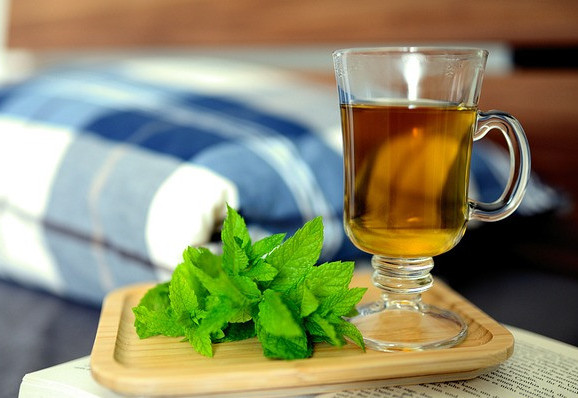You might be asking yourself why I am so gassy and bloated, well it’s no surprise that many of us can feel occasional gas and bloated. Sometimes it can be just excessive air you might have swallowed while eating or even chewing gum.
However: when it becomes a daily struggle it can cause pain and embarrassment.
There are many causes of gas and bloating that we all experience in our lives some might be nothing to worry about. However: when they become chronic it is better to get to the root cause instead of putting a bandaid by using over-the-counter medications. Bloating and gas that doesn’t resolve naturally can give a red flag that something serious is happening down there, such as diseases in the colon like Crohn’s, SIBO, ( Small intestine bacterial overgrowth) Cancer, etc.
Symptoms of gas and bloating?
- uncomfortable feeling full after eating

- Abdominal pain
- Farting excessively
- abdominal distention
- heartburn
Common causes of gas and bloating
- Eating too much food
- Eating too fast leads to overeating, which puts pressure on the digestive system, hence lacking the ability to process food, and then bloating is unavoidable.
- Not chewing food properly prevents digestive enzymes that help break up food from being released making it difficult for undigested food in the gut to ferment which leads to gas and bloating.
- Too much swallowing of gas when drinking using straws
- Food allergies
- Stress – When we are stressed we tend to reach for unhealthy foods for comfort that triggers bloating
- Lack of enough digestive enzymes, as we age the production of enzymes decreases conditions like autoimmune, diseases, and Sjogren’s syndrome attack salivary glands impairing saliva production. Also conditions such as SIBO and leaky gut impact enzyme production in the intestine due to inflammation and damaged cell.
- Eating too much-processed food, caffeine, and alcohol
- Bacterial imbalance is caused by taking frequent antibiotics which can wipe off the gut microbiome necessary to protect our immune system. Diverse microbes act as the first line of defense for the immune system, lack of that can lead to all kinds of diseases.
- Parasites
- Candida
- Nutrient deficiencies
What foods trigger bloating
- Legumes such as beans and lentils – Although healthy they can trigger gas and bloating during digestion to avoid this soaking in water to get reduce lectins that cause gas
- Vegetables like Broccoli, Cauliflower, Brussels sprouts, and cabbage especially when eaten raw, cook it reduces bloating
- Milk or milk products- Many people struggle with lactose in milk (lactose intolerance) meaning the stomach can’t tolerate lactose in the milk. Bloating is one of the symptoms triggered by the milk
- Refined grains – They cause many difficulties in digestion due to the gluten in these grains to have, for example, corn, and other grains
- Sugary and sweetened snacks – Sugar causes fermentation liked by disease-causing bugs which contribute to Candida and inflammation in the gut.
Natural remedies for gas and bloating

Peppermint Tea
Here are some natural ways you can use to relieve gas and bloating. These can help with indigestion with fewer or no side effects instead of over-the-counter drugs.
- Peppermint – As one study indicated that using peppermint oil helps with indigestion, reduction of gas, and abdominal pain
- Chamomile tea – In addition to gas relief it also has anti-inflammatory properties therefore can calm both the mind and stomach
- Ginger – Ginger is a historical herb that has been used for centuries for all sorts of digestion issues including gas and flatulence. Making a cup of tea using ginger is easy by boiling water and adding grated ginger then drinking it 20 minutes before each meal.
- Caraway Seeds – It is rich in vitamins and minerals. It is known to relax the smooth muscles of the digestive tract aiding in indigestion, gas, and bloating
- Turmeric and ginger – They work together to get rid of gas by combining fresh grated 1 teaspoon of ginger and 1 teaspoon of turmeric root put in a cup of boiling water and infusing it in 10 minutes to help with gassy and bloating.
- Apple Cider Vinegar (ACV) – Used raw apple cider vinegar which helps with gas naturally by mixing with lukewarm water and then drinking it before meals.
- Probiotics – They help to balance the gut microbiome, getting rid of gas and bloating as well. Good bacteria are found in food such as yogurt and kefir
Lifestyle changes for treating gas and bloating
- Chewing food slowly and well – Trying not to rush when eating because while chewing saliva is released which has enzymes. Saliva mixes up with food that breaks down further making it even easier for the stomach to digest.
- Avoiding food that doesn’t agree with your digestive system as the saying goes “one man’s food is another man’s poison” meaning we are not one size fits all, for example, gluten can make some people sick and not others.
- Gentle exercise such as walking after a meal can help with digestion and gas
- Gentle colon massage following the lining of the colon help with bloating and gas
- Physical activity and making movements can help trapped gas go from the intestines through the anus as gas is removed and bloating.is relieved.
Testing for underlying root cause
The best way to find out the root cause of your gas and bloating is to do some testing. There are two tests that so far have shown some clarity as to getting to the bottom line of the problem this can eliminate the guesswork.
- GI map/ CDSA stool test – This is a stool test that can tell more about the condition of the gut microbiome and if there are any imbalances or if there is any infection going on caused by bacteria, fungi, yeast, and parasites.
- Lactulose or glucose breath test – it’s a test mainly to tell if one has SIBO, If there’s an overgrowth of bacteria in the gut lactulose causes fermentation to occur and produce methane gas. This can be measured by taking breaths into a tube. This test is found to best diagnose SIBO as the root cause.
In conclusion
Gas and bloating are annoying and embarrassing and can sometimes be eliminated easily by changing your eating habits, for instance, chewing slowly which is called “mindful eating” these days, and avoiding foods that are triggered as mentioned above. Therefore: lifestyle and diet changes are the best strategy to try first.
If you don’t get any relief it’s time to see a healthcare provider. Preferably a functional medicine that can help get into the underlining cause rather than writing you a prescription drug that just puts a bandaid and that might make it even worse because of the side effect.
References
- Gas and Bloating – PMC (nih.g
- https://www.medicalnewstoday.com/articles/265214#uses-and-benefits
- Overview of intestinal gas and bloating – UpToDate
